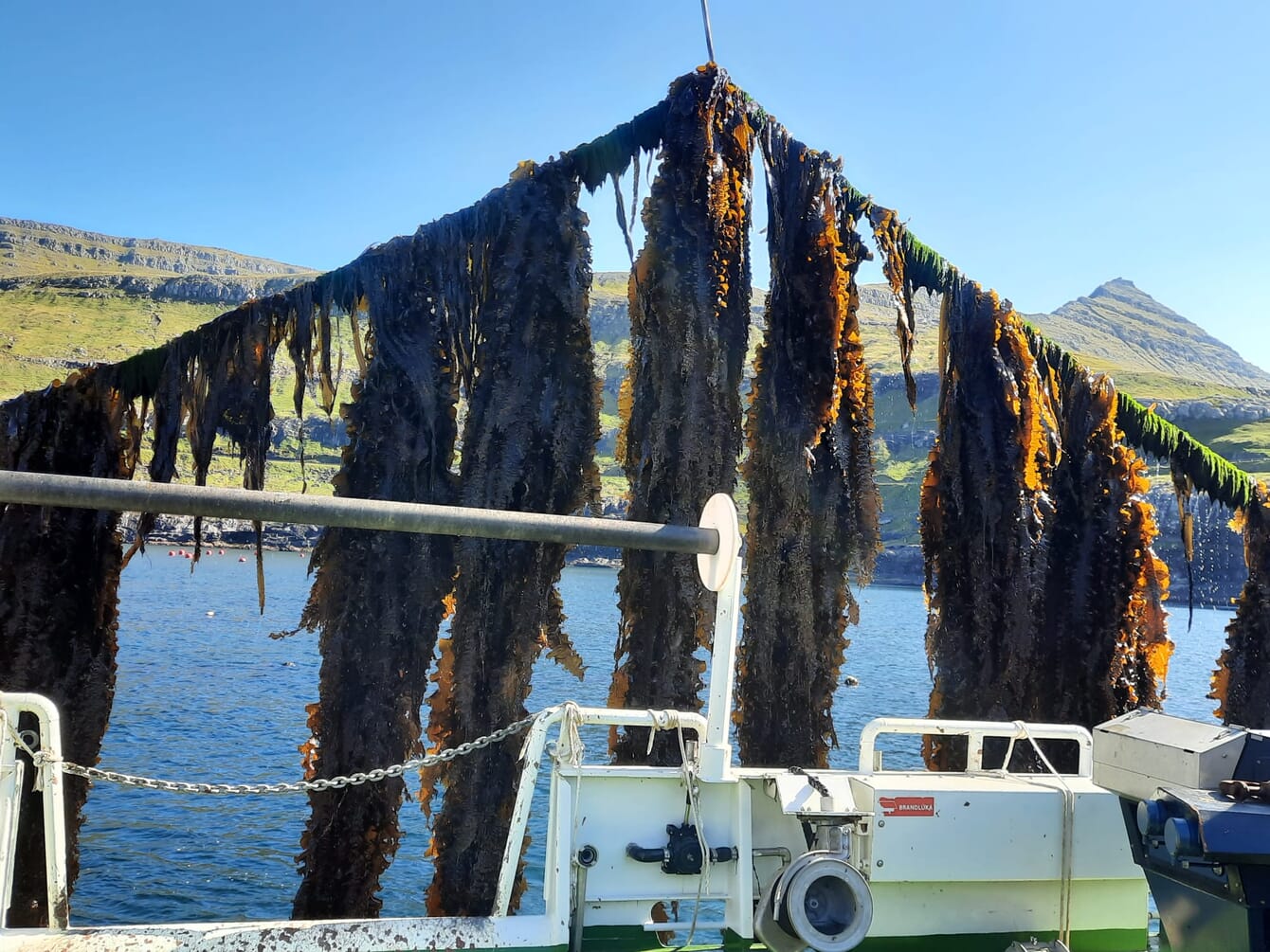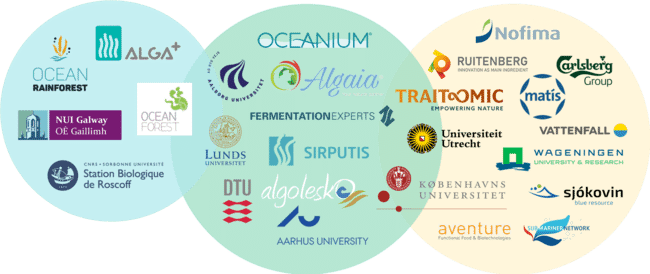
© Ocean Rainforest
Hosted by Ocean Rainforest, the SeaMark public-private partnership – comprising 25 multi-disciplinary partners – met in Tórshavn to kick off the project.
SeaMark’s cross-disciplinary team will scale up macroalgae cultivation and processing techniques to develop 12 innovative products in the first seaweed biorefinery plant for cultivated seaweed. The innovations will show that macroalgae – a zero-carbon crop – can be used in multiple industries, with multiple concurrent socioeconomic and environmental benefits compared to other industrial feedstocks such as terrestrial crops or petrochemicals. Alongside market applications, SeaMark will quantify ecosystem services provided by seaweed farms, contributing to a body of evidence justifying large-scale seaweed cultivation as a bioremediation tool and key element of a new circular bioeconomy.

The meeting was opened by Magnus Rasmussen, the Faroese minister of environment, industry and trade, who welcomed the project as a beacon of hope for the future of Europe, strengthening collaboration between the Faroes and its neighbours. The project coordinator, Olavur Gregersen, called on partners to prove the seaweed sceptics wrong by delivering the ambitious scale and quality of results promised in the proposal. Guest speakers Lena Lange of LLa-Bioeconomy Research & Advisory, Linn-Anne Bjelland-Brunborg of Orkla Foods, Adrien Vincent of Seaweed for Europe, Simon Freeman of ARPA-e USA and Paul Dobbins of WWF USA applauded the project and gave the consortium tips on how to maximise their impact and get seaweed on a level playing field with more established industries.



